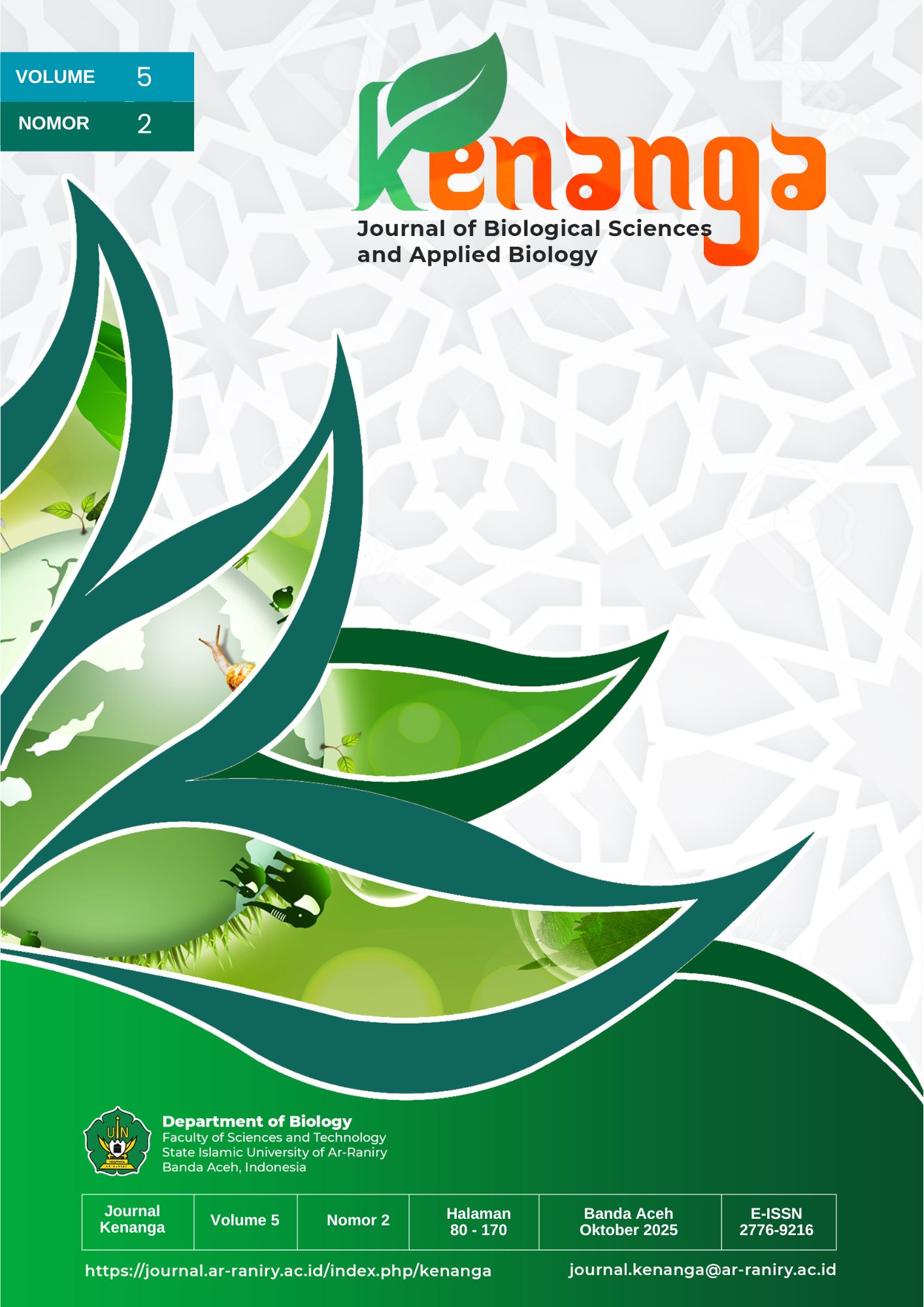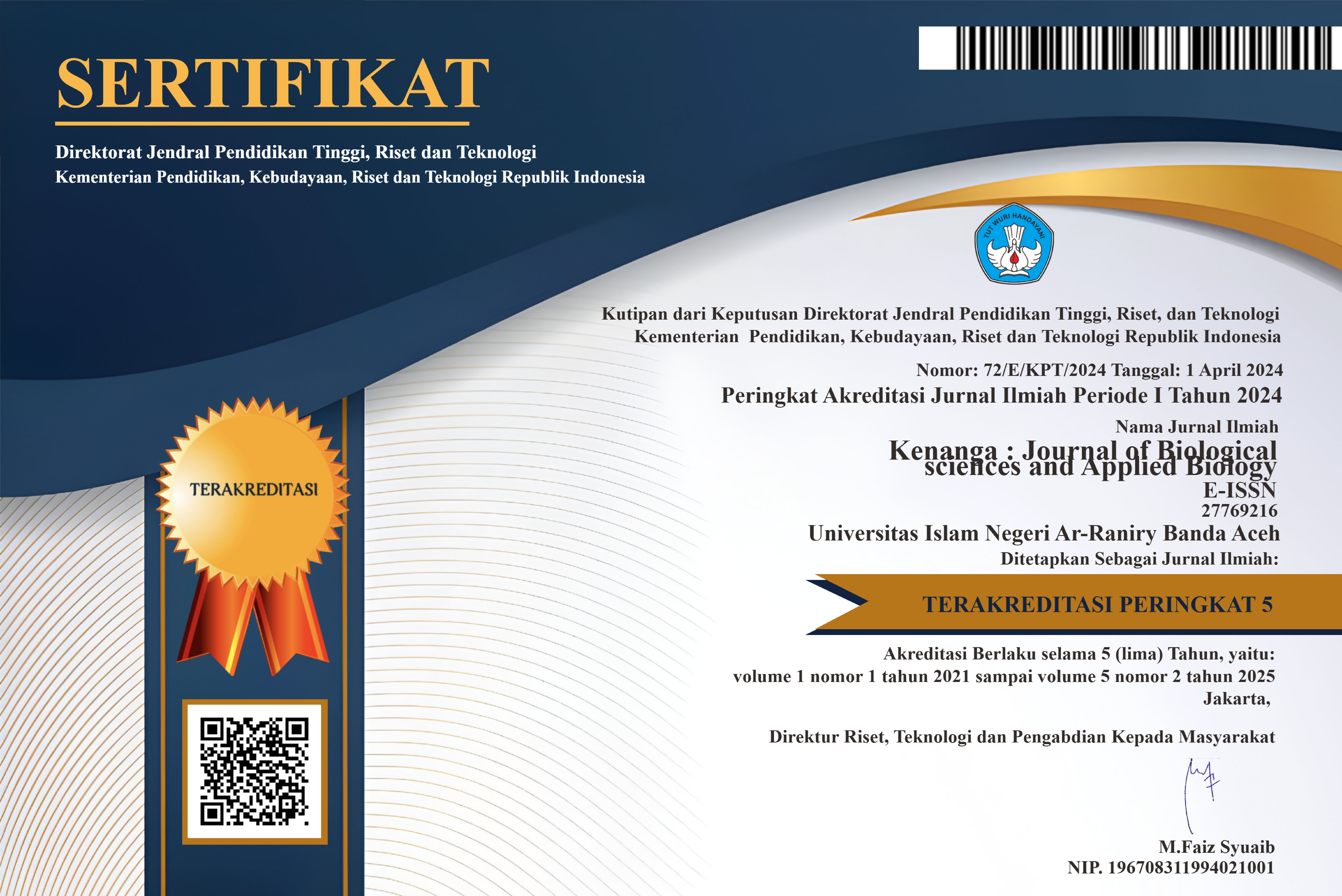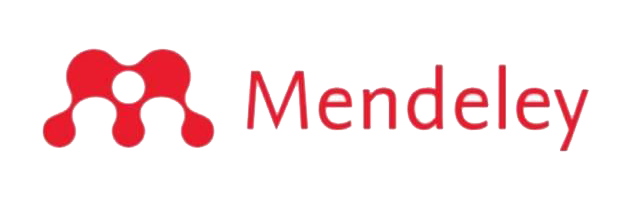ANALISIS KONDISI TERUMBU KARANG DI PERAIRAN PULAU TUNDA, PROVINSI BANTEN
DOI:
https://doi.org/10.22373/kenanga.v5i2.8470Abstract
Coral reefs are vital coastal ecosystems that provide significant ecological and economic functions, supporting the sustainability of ecosystem services in coastal areas and small islands. The coral reef ecosystem on Tunda Island, Serang Regency, Banten Province, is currently experiencing degradation due to pressures from anthropogenic activities, such as destructive fishing practices, industrial operations, and tourism intensification, all of which potentially disrupt the marine ecosystem’s balance. This study aims to analyze the condition of coral reefs in Tunda Island by assessing substrate cover percentage, life form composition, and community structure. Data were collected using the Underwater Photo Transect (UPT) method at four stations at depths of 4 m and 8 m. Transect photos were analyzed using CPCe software, while community structure was assessed using diversity (H’), dominance (D), and evenness (E) indices. Results showed that the average live coral cover was only 16.92%, categorized as poor. Life form composition was dominated by Non-Acropora corals, particularly massive, branching, and foliose types. Community structure analysis indicated moderate diversity (H’ = 2.29), low dominance (D = 0.17), and high evenness (E = 0.7), suggesting a relatively stable community despite low coral cover.
Keywords: coral reef; community structure; Tunda Island
Downloads
Published
Issue
Section
License
Copyright (c) 2025 KENANGA : Journal of Biological Sciences and Applied Biology

This work is licensed under a Creative Commons Attribution-ShareAlike 4.0 International License.
Kenanga: Journal of Biological Sciences and Applied Biology is licensed under CC BY-SA 4.0


























